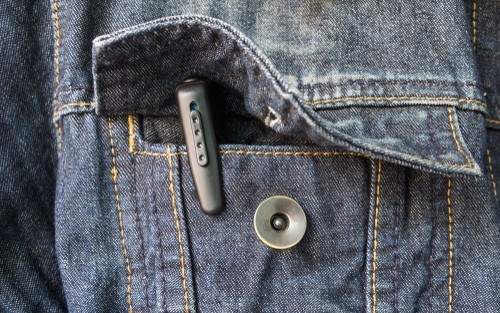


The use of technology in surveillance has always drawn media attention and mild public outcry, particularly when the surveillance is no more than curious snooping or something more sinister. Some surveillance technical tools are regulated and of course, the very subject of surveillance has its own government-sponsored regulator, the Office of Surveillance Commissioners. And of course, we have the data processing issues that may arise in the handling of captured imagery.
For many years, the surveillance operative has relied on video technology to capture events and provide supportive evidence. The technology has improved and become ever more versatile.
Turn now to the surveillance operative's possible other tasks, also akin to the judicial system, and one can then start to understand the synergy in the techniques and tools used.
Process Serving and the inevitable need to make enquiries to locate the intended recipient of that process very often places the Process Server (think of him as the Messenger) in the firing line between two judicially warring parties. In a domestic dispute, particularly when children are the issue, that war can be extremely hostile with parties behaving beyond reason or logic.
Add to the mix the ever increasing lawlessness and ever-disappearing respect towards officialdom and officials, plus the absence of law enforcement agencies, and one may understand how it is becoming an unfortunate regularity where members of the ABI, in the role of Process Server, are being assaulted when going about the legitimate task of ensuring the right person receives in timely fashion the correct due process of law in paper format.
The Process Server was once considered and regarded by the Judiciary as an Officer of the Court. I seem to recall reading a Rule many years ago that an assault on an Officer of the Court could constitute a contempt of Court, a quasi criminal act, that the same Court (Judge) issuing the process, be it with jurisdiction in civil, domestic or criminal matters, could make a Committal Order directing the arrest of the assailant. If that was fantasy then, it certainly is fantasy now, as the Process Server is afforded no protection or support from the Judiciary or law enforcement.
But it is worse.
The ABI has sadly received reports where a member assaulted in the line of process serving duty, then finds himself arrested and facing a false allegation by the assailant, who does get law enforcement support, probably because it is an easier solution to the scenario the attending officer finds and fails to understand. Perhaps the assailant simply shouts loudest.
However, let’s also look at the other side of the coin and consider the receiving party’s possible complaint that he was not served, an incident that occurred due to the Process Server’s mismanagement of the event or some other issue that brings into question whether the delivery of the process was dealt with correctly and professionally.
And so the Process Server looks to introducing the available surveillance tools to afford some protection, assistance, and/or gather evidence in the event that the recipient of the Court’s process, or his friends, family, or associates, should have taken umbrage to being served with official documents or challenge the very service of the process.
For the protection of its members, the ABI advocates a zero tolerance policy if an assault occurs, but this will require corroborative evidence, particularly as more often than not the Process Server works on his own. And so too, where an issue arises about the serve itself, rather than rely on a “he said, she said” balance of oral evidence, the Process Server could rely on video and / or audio footage that captured the event.
For these reasons, the ABI has recognised the increasing practice of its members using bodyworn cameras when undertaking Process Server duties. The reliance on such technology raises a number of compliance issues, which the ABI covers in this Policy document.
The policy addresses the implications of various regulations and privacy issues and provides a step-by-step guide on the deployment of the technology and the handling and destruction of the captured data.